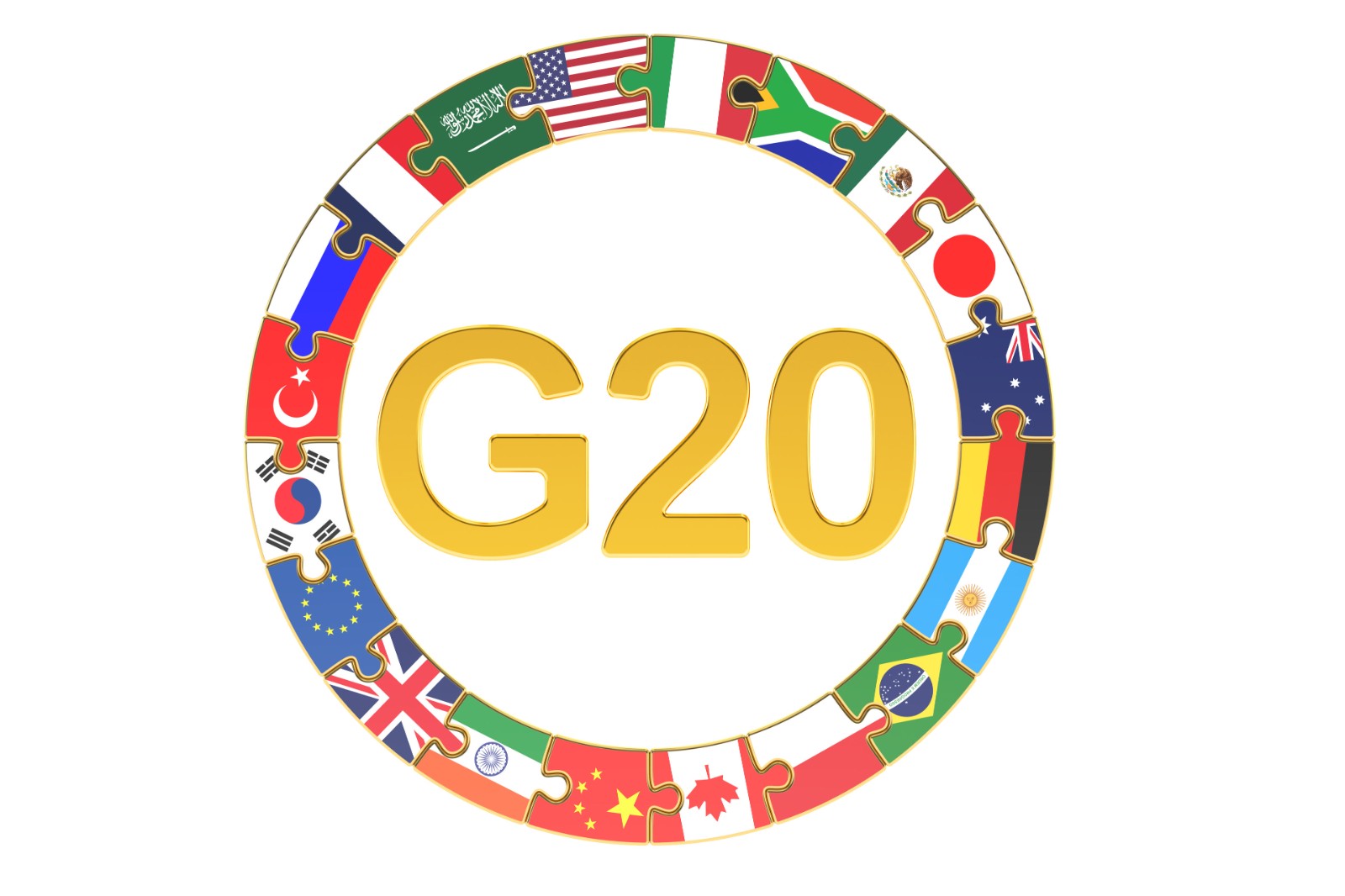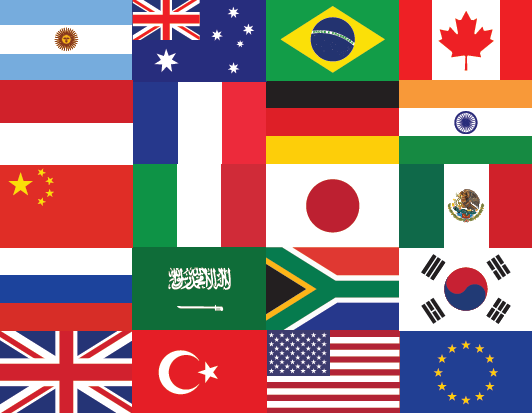ABOUT THE G20
The Group of Twenty (G20) is a strategic multilateral platform connecting the world’s major developed and emerging economies. The G20 holds a strategic role in securing future global economic growth and prosperity. Together, the G20 members represent more than 80 percent of world GDP, 75 percent of international trade and 60 percent of the world population.
Starting in 1999 as a meeting for the finance minister and central bank governors, the G20 has evolved into a yearly summit involving the Head of State and Government. In addition to that, the Sherpa meetings (in charge of carrying out negotiations and building consensus among Leaders), working groups, and special events are also organized throughout the year.

PARTICIPANTS
The members of the G20 are: Argentina, Australia, Brazil, Canada, China, France, Germany, India, Indonesia, Italy, Japan, Republic of Korea, Mexico, Russia, Saudi Arabia, South Africa, Turkey, the United Kingdom, the United States, and the European Union. Spain is also invited as a permanent guest.
Each year, the Presidency invites guest countries, which take full part in the G20 exercise. Several international and regional organizations also participate, granting the forum an even broader representation.

HOW THE G20 WORKS
The presidency of the G20 rotates every year among its members, with the country that holds the presidency working together with its predecessor and successor, also known as Troika, to ensure the continuity of the agenda. Currently Italy, Indonesia, and India are the Troika countries.
The G20 has no permanent secretariat. Agenda and the work coordination is completed by G20 leaders’ personal representatives, known as sherpas together with finance ministers and central bank governors.
The pinnacle of the G20 work in each cycle is a communiqué expressing members’ commitments and vision for the future, drafted from the chosen recommendations and deliverables from ministerial meetings and other work streams.
ORIGINS OF THE G20
The G20 was formed in 1999 with the aim of discussing policies in order to achieve international financial stability. This forum was formed as an effort to find a solution to the global economic conditions hit by the global financial crisis in 1997-1999 by involving middle-income countries and having systemic economic influence, including Indonesia.
On the advice of the G7 Finance Ministers, the G20 Finance Ministers and Central Bank Governors began holding meetings to discuss the response to the global financial crisis that occurred. After that, the Minister of Finance level meeting is held regularly in the fall.
Nine years later, on November 14-15 2008, the leaders of the G20 countries gathered for the first G20 Summit. On that occasion, the country’s leaders coordinated the global response to the impact of the financial crisis that occurred in the US at that time and agreed to hold a follow-up meeting.
To prepare for the annual summit, the G20 Finance Ministers and Central Bank Governors, together with Sherpas meet several times a year.